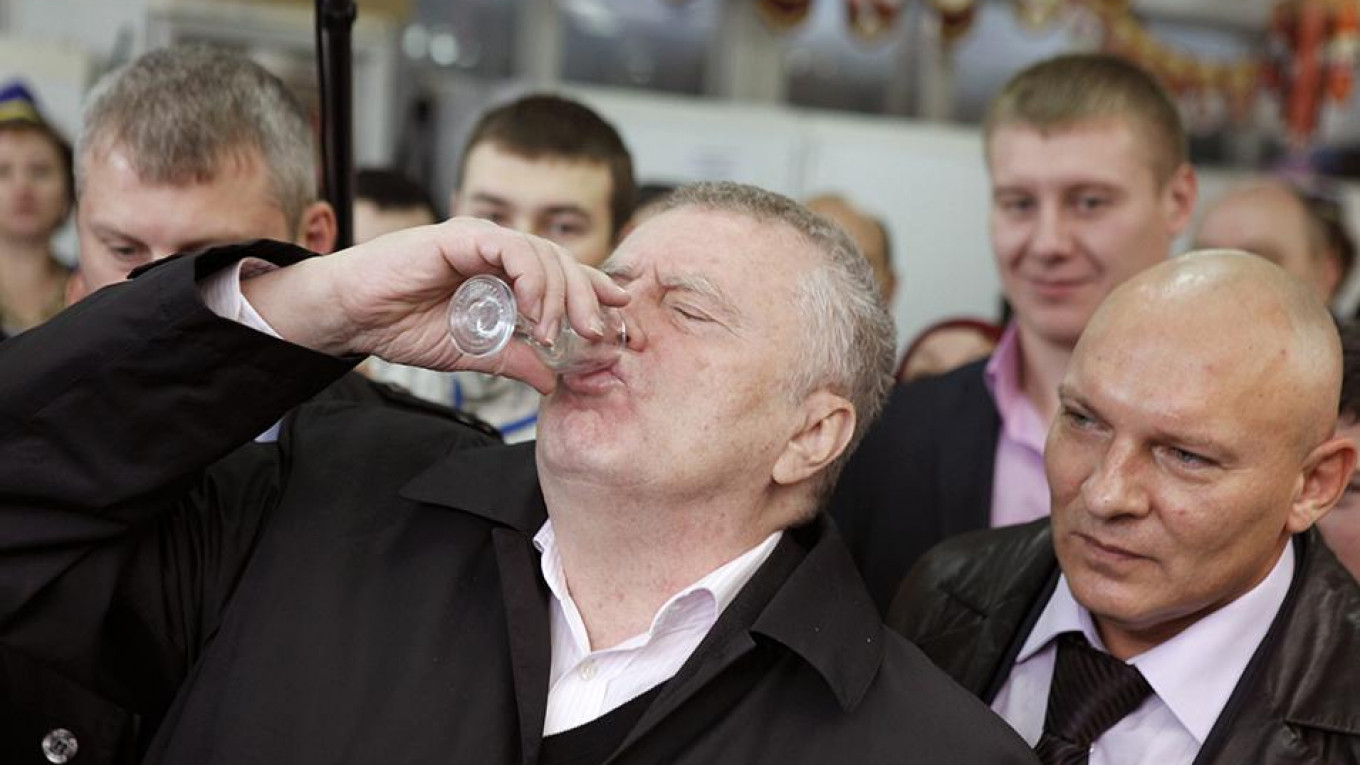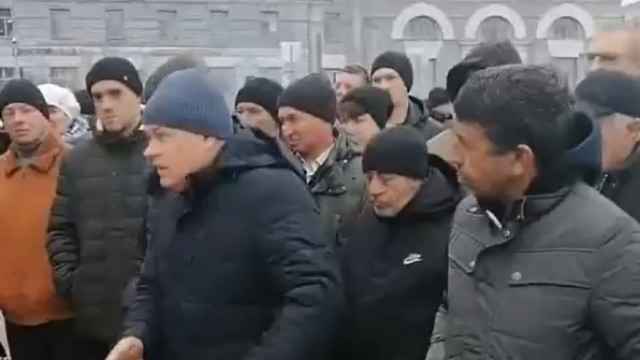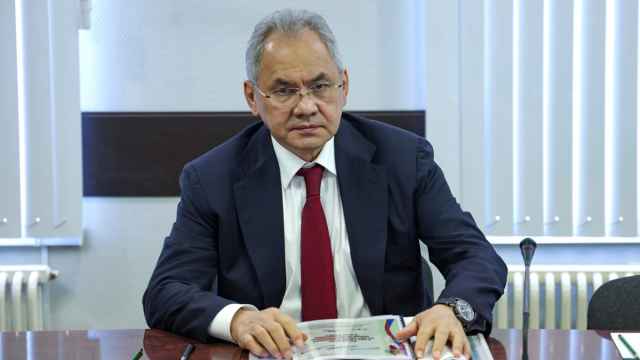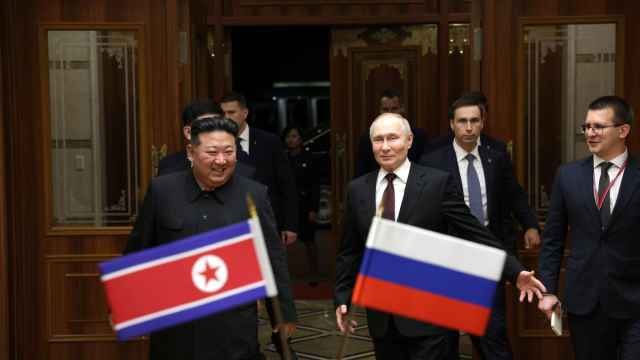On the final day of campaigning before Sunday’s presidential elections, Russia’s self-proclaimed “supreme leader” addressed a gathering of his most loyal supporters in his usual firebrand style.
“We are choosing a new president in the most volatile of times,” Vladimir Zhirinovsky warned at his campaign headquarters on Friday morning. “We see ultimatums from London and Washington, backed by Berlin. The situation is even more dangerous than in 1941 when German tanks advanced on Moscow.”
Even as defeat looked all but certain, the crowd whooped and cheered. Backstage, his staffers busied over the campaign’s finishing touches ahead of the midnight deadline.
With the March 18 vote looming, the latest figures show the Liberal Democratic Party candidate polling at just five percent. If those numbers hold on Sunday, Zhirinovsky — now trying for the presidency a sixth time — will have seen his cut of the vote drop over the last two elections.
It’s a trend that has not swayed his most ardent supporters.
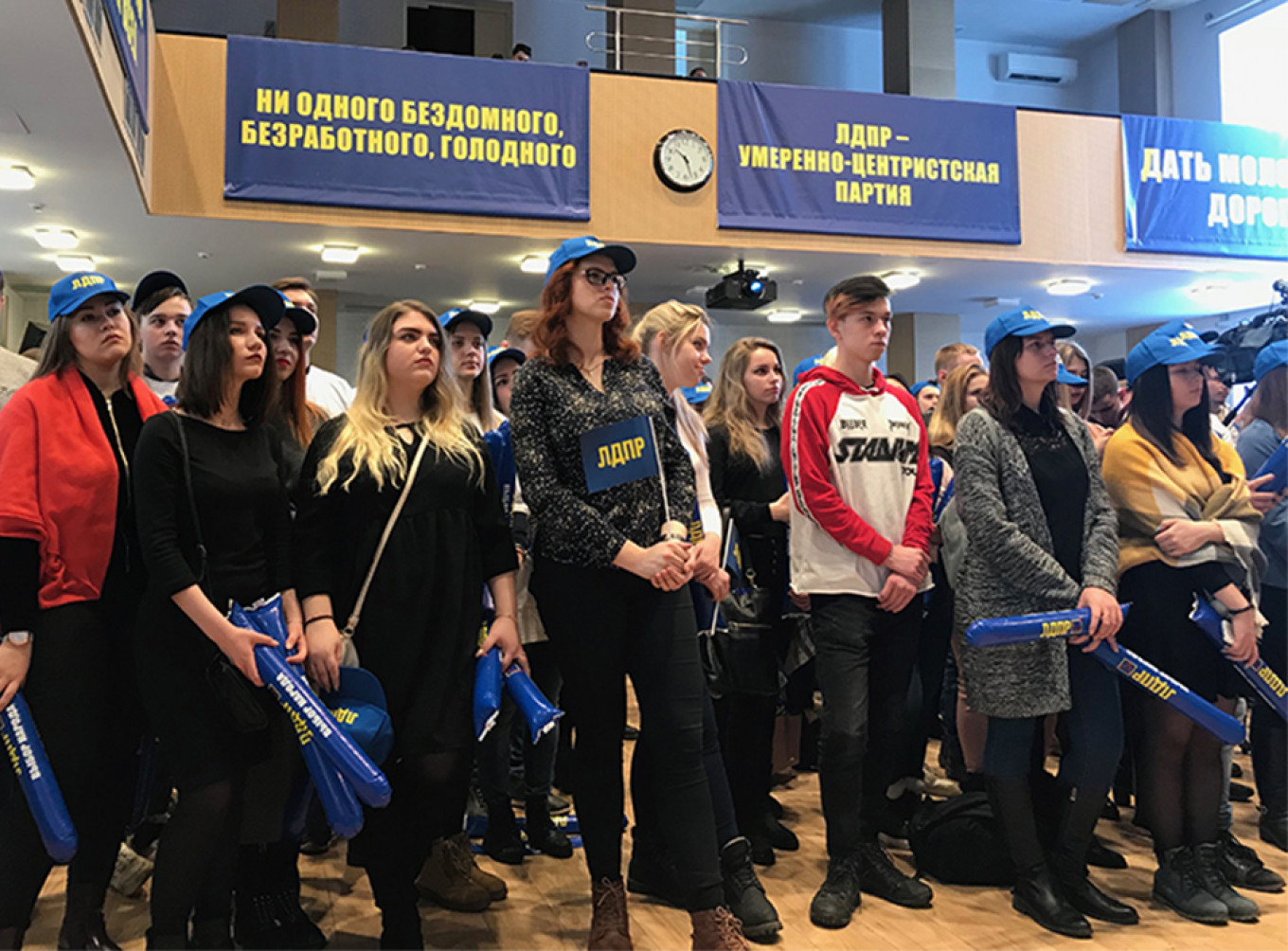
“He’s a very charismatic man,” said campaign staffer Ilya Alexonov, 25. “He draws you to him.”
By indiscriminately lobbing populist proclamations, an aging Zhirinovsky seems to have been able to reel in a younger generation. As another 25-year-old campaign staffer Maxim Yaroslav put it: “He says what they won’t tell you on the news.”
Zhirinovsky, now 71, and his cult of personality were on full display at the party’s headquarters, decorated with portraits depicting him as a king seated on a throne, a seafaring captain and even as an enlightened Buddhist monk.
This image was only reinforced by gifts on view he had received from deposed authoritarian rulers Muammar Gaddafi, who bestowed him a snakeskin and leopard-pelt covered chair, and Saddam Hussein, who gifted a watch embossed with his grinning visage.
“I am constantly surprised at the wide reach of his appeal,” said Pyotr Yakovich, 65, who has presided over the museum two years.
It’s an appeal, says Abbas Gallyamov, a former Kremlin speechwriter turned political analyst, that should not be overstated.
“These days he’s on the periphery,” Gallyamov told The Moscow Times. “He still attracts young people who will turn out for him in a joking spirit. But if he didn’t argue with [Ksenia] Sobchak, people would have simply forgotten about him.”
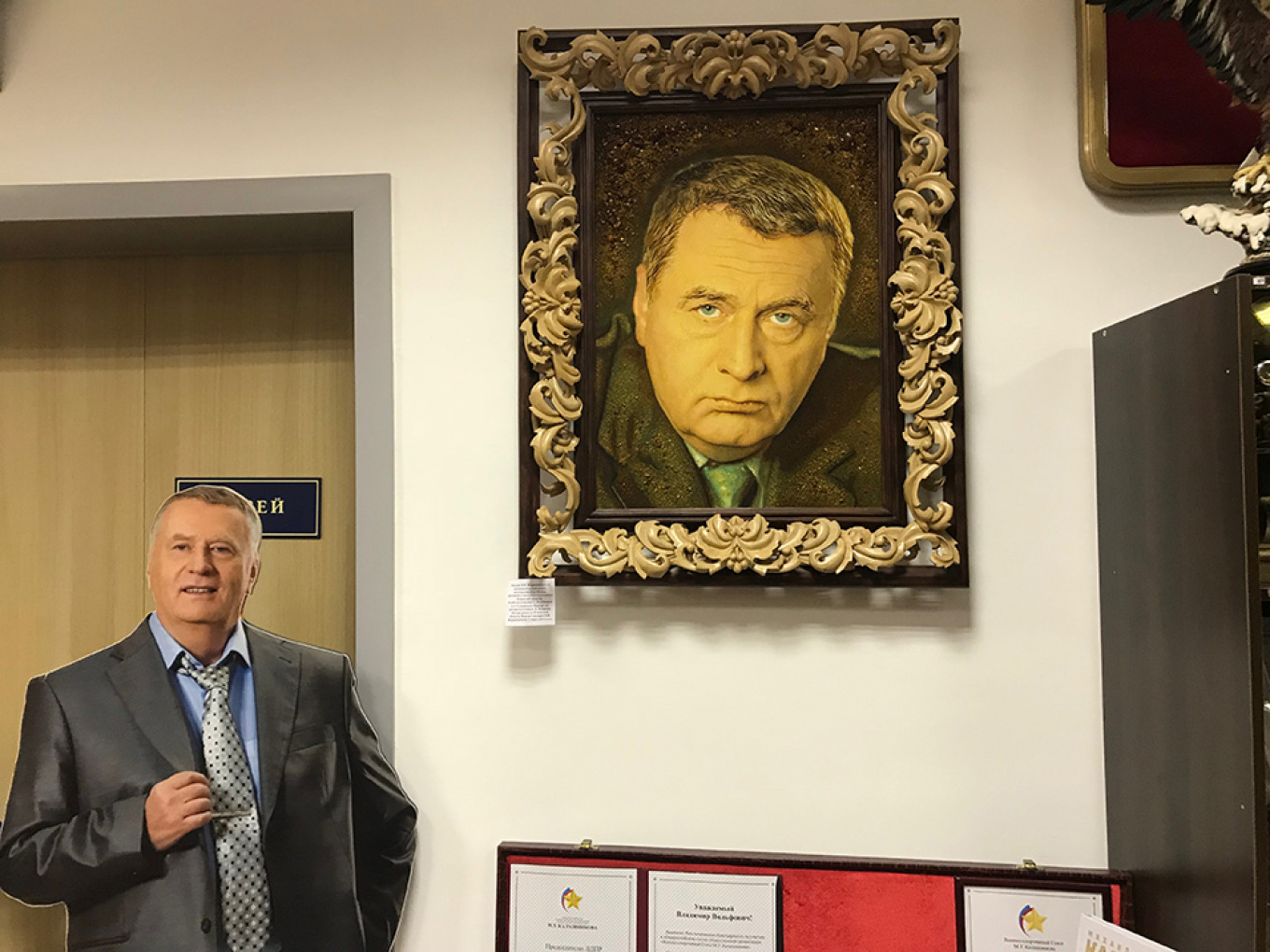
It was one of the few memorable moments of Zhirinovsky’s campaign. During a debate with the other candidates aired on state television last month, he antagonized the former reality television star turned opposition politician to the point of her dousing him with water.
“Whore,” Zhirinovsky barked at Sobchak in response.
The other notable displays of his sixth campaign have been few and far between. In an earlier debate, he promised to impose a "brutal dictatorship" if elected president. When he appeared unannounced at a demonstration organized by opposition politician Alexei Navalny in January, protesters shouted at him to leave.
“He’s still out there fulfilling his role as a ‘spoiler’ for the Kremlin,” Gallyamov explained, referring to the candidates accused of being put forth to split the opposition vote and stir up interest in predictable elections. “But at this point, he is just going to get older.”
Already, Gallyamov said, new faces are edging out the stalwarts of past presidential elections. Newcomers, including Sobchak, the Communists’ new candidate Pavel Grudinin, a millionaire farm boss, and Navalny — though he was barred from standing this year — are rendering the old guard obsolete.
At the campaign’s headquarters on Friday morning, Zhirinovsky and his followers had not given up just yet.
“You know he predicted [U.S. President Donald] Trump’s victory,” said Alexonov, who was handing out socks, packets of tea and cans of deodorant emblazoned with his candidate’s face. “Why campaign for him if you don’t believe he will win?”
Added Yaroslav: “If Trump could do it, why can’t Zhirinovsky?”
A Message from The Moscow Times:
Dear readers,
We are facing unprecedented challenges. Russia's Prosecutor General's Office has designated The Moscow Times as an "undesirable" organization, criminalizing our work and putting our staff at risk of prosecution. This follows our earlier unjust labeling as a "foreign agent."
These actions are direct attempts to silence independent journalism in Russia. The authorities claim our work "discredits the decisions of the Russian leadership." We see things differently: we strive to provide accurate, unbiased reporting on Russia.
We, the journalists of The Moscow Times, refuse to be silenced. But to continue our work, we need your help.
Your support, no matter how small, makes a world of difference. If you can, please support us monthly starting from just $2. It's quick to set up, and every contribution makes a significant impact.
By supporting The Moscow Times, you're defending open, independent journalism in the face of repression. Thank you for standing with us.
Remind me later.



